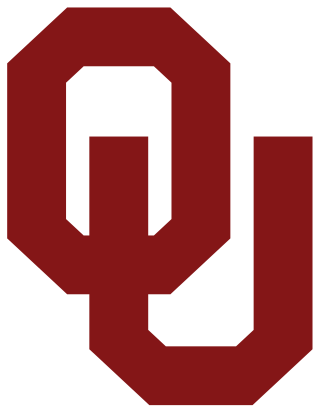
The Fiesta Bowl is an annual American college football bowl game played annually in the Phoenix metropolitan area since 1971.

The Sugar Bowl is an annual American college football bowl game played in New Orleans, Louisiana. Played annually since January 1, 1935, it is tied with the Orange Bowl and Sun Bowl as the second-oldest bowl games in the country, surpassed only by the Rose Bowl Game.

The Bowl Championship Series (BCS) was a college football post-season selection system that created four or five bowl game match-ups involving eight or ten of the top ranked teams in the NCAA Division I Football Bowl Subdivision (FBS) of American college football, including an opportunity for the top two teams to compete in a national championship game. The system was in place from the 1998 season to the 2013 season and was replaced in 2014 by the College Football Playoff (CFP).

In North America, a bowl game, or simply bowl, is one of a number of postseason college football games primarily played by NCAA Division I Football Bowl Subdivision (FBS) teams. For most of its history, the FBS did not use a playoff tournament to determine an annual national champion, instead relying on a vote by sportswriters or coaches. In place of such a playoff, cities developed regional festivals featuring bowls. Prior to 2002, bowl game statistics were not included in players' career totals. Despite moves to establish a permanent system to determine the FBS national champion on the field — such as the Bowl Coalition from 1992 to 1994, the Bowl Alliance from 1995 to 1997, the Bowl Championship Series (BCS) from 1998 to 2013, and the College Football Playoff (CFP) from 2014 through the present — some bowls are still held.

Robert Anthony Stoops is an American football coach who is the head coach for the Arlington Renegades of the United Football League (UFL). He was the head football coach at the University of Oklahoma from 1999 through the 2016 season, and on an interim basis during the 2021 Alamo Bowl. He led the Oklahoma Sooners to a record of 191–48 over his career. His 2000 Oklahoma Sooners football team won the 2001 Orange Bowl, which served as the BCS National Championship Game, and earned a consensus national championship. Since 2020, Stoops has been a head coach with the XFL, coaching the Renegades in 2020 and has been re-signed for 2023. Stoops' Renegades won the XFL Championship in 2023.

The BCS National Championship Game, or BCS National Championship, was a postseason college football bowl game, used to determine a national champion of the NCAA Division I Football Bowl Subdivision (FBS), first played in the 1998 college football season as one of four designated bowl games, and beginning in the 2006 season as a standalone event rotated among the host sites of the aforementioned bowls.

The power conferences are the most prominent athletic conferences in college football in the United States. They are part of the Football Bowl Subdivision (FBS) of the National Collegiate Athletic Association's Division I, the highest level of collegiate football in the nation, and are considered the most elite conferences within that tier. Power conferences have provided most of the participants in the College Football Playoff (CFP) and its predecessors, and generally have larger revenue, budgets, and television viewership than other college athletic programs. The Atlantic Coast Conference (ACC), Big Ten Conference (B1G), Big 12 Conference, and Southeastern Conference (SEC) are currently recognised as power conferences.

The Oklahoma Sooners football team represents the University of Oklahoma (OU) in college football at the NCAA Division I Football Bowl Subdivision level in the Southeastern Conference (SEC). The program began in 1895 and is one of the most successful in history, having won 950 games and possessing a .723 winning percentage, both sixth all-time. Oklahoma has appeared in the AP poll 905 times, including 101 No. 1 rankings, both third all-time. The program claims seven national championships, 50 conference championships, 167 first-team All-Americans, and seven Heisman Trophy winners. The school has had 29 former players and coaches inducted into the College Football Hall of Fame and holds the record for the longest winning streak in Division I history with 47 straight victories. Oklahoma is also the only program with which four coaches have won more than 100 games each.
The 2001 Orange Bowl, designated as the BCS National Championship Game, was a college football bowl game played to determine a national champion in the National Collegiate Athletic Association's Division I Football Bowl Subdivision (FBS) for the 2000 season. It was played at Pro Player Stadium in Miami Gardens, Florida, on January 3, 2001, with kickoff at 8:00 p.m. EST and television coverage by ABC. The 67th playing of the Orange Bowl, it was the culminating game of the 2000–01 bowl season.
The 2005 Tostitos Fiesta Bowl, played on January 1, 2005, was the 34th edition of the Fiesta Bowl. The game was played between Utah and Pittsburgh, in front of 73,519 fans. It is notable for being the first BCS game to feature a team from a BCS non-AQ conference.
The Bowl Championship Series (BCS) was a selection system used between 1998 and 2013 that replaced the previously similarly more controversial Bowl Coalition and Bowl Alliance that was used between 1992 and 1997 and was replaced by the College Football Playoff in 2014. The selection system was designed, through polls and computer statistics, to determine a No. 1 and No. 2 ranked team in the NCAA Division I Football Bowl Subdivision (FBS). After the final polls, the two top teams were chosen to play in the BCS National Championship Game which determined the BCS national champion team, but not the champion team for independent voting systems. This format was intended to be "bowl-centered" rather than a traditional playoff system, since numerous FBS Conferences had expressed their unwillingness to participate in a play-off system. However, due to the unique and often esoteric nature of the BCS format, there had been controversy as to which two teams should play for the national championship and which teams should play in the four other BCS bowl games. In this selection process, the BCS was often criticized for conference favoritism, its inequality of access for teams in non-Automatic Qualifying (non-AQ) Conferences, and perceived monopolistic, "profit-centered" motives. In terms of this last concern, Congress explored the possibility on more than one occasion of holding hearings to determine the legality of the BCS under the terms of the Sherman Anti-Trust Act, and the United States Justice Department also periodically announced interest in investigating the BCS for similar reasons.
The 2010 FedEx Orange Bowl game featured the Georgia Tech Yellow Jackets and the Iowa Hawkeyes on Tuesday, January 5, 2010, at Land Shark Stadium in Miami Gardens, Florida. Iowa won the game 24–14, securing the Hawkeyes' first major bowl win since the 1959 Rose Bowl.

The Orange Bowl is an annual American college football bowl game played in the Miami metropolitan area. Played annually since January 1, 1935, it is tied with the Sugar Bowl and the Sun Bowl as the second-oldest bowl games in the country, surpassed only by the Rose Bowl Game.
The 2011 Tostitos Fiesta Bowl was a postseason college football bowl game between the Connecticut Huskies (UConn), co-champions of the Big East Conference, and the Oklahoma Sooners, champions of the Big 12 Conference, at University of Phoenix Stadium in Glendale, Arizona, on January 1, 2011. The game, part of the 2011 Bowl Championship Series and the 40th contest in Fiesta Bowl history, was the final game of the 2010 NCAA Division I-Football Bowl Subdivision football season for both teams. It ended in a 48–20 victory for Oklahoma.
The Plus-One system was a suggested modification to the process used by the Bowl Championship Series (BCS) to determine a national champion in college football.

The College Football Playoff (CFP) is an annual postseason knockout invitational tournament to determine a national champion for the National Collegiate Athletic Association (NCAA) Division I Football Bowl Subdivision (FBS), the highest level of college football competition in the United States. It culminates in the College Football Playoff National Championship game. The inaugural tournament was held at the end of the 2014 NCAA Division I FBS football season under a four-team format. The CFP Board of Managers voted in 2023 to expand the playoff to twelve teams beginning in 2024, an arrangement that will last at least through the end of the 2025 season. After 2025, the current contract between all major entities expires and a new contract will be drawn up, with indications that additional expansion to a 14-team playoff or larger may take place at that time.

The New Year's Six, sometimes abbreviated as NY6, are the following NCAA Division I Football Bowl Subdivision (FBS) bowl games: the Rose Bowl, Sugar Bowl, Orange Bowl, Cotton Bowl, Peach Bowl, and Fiesta Bowl. These games are traditionally played annually on or around New Year's Day and represent six of the ten oldest bowl games played at the FBS level.











